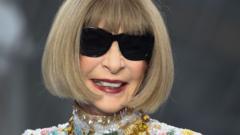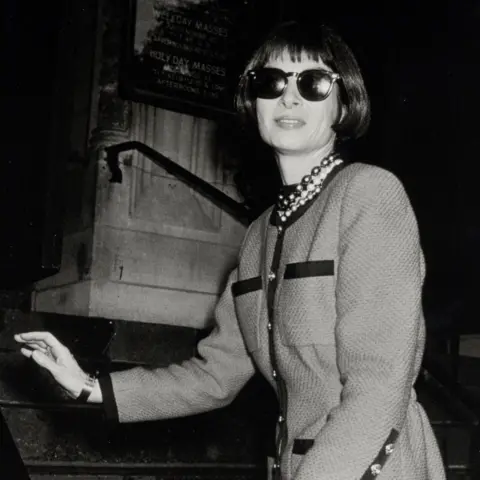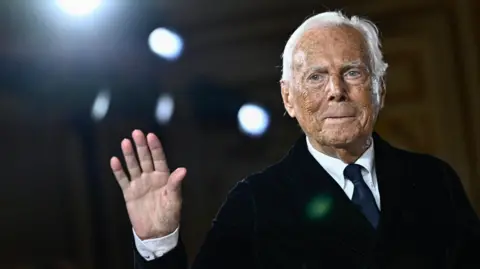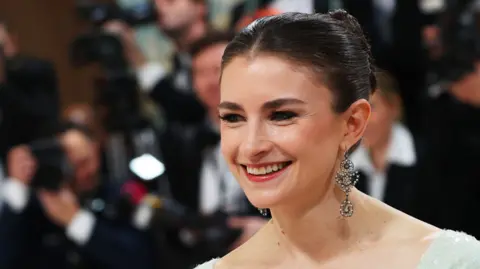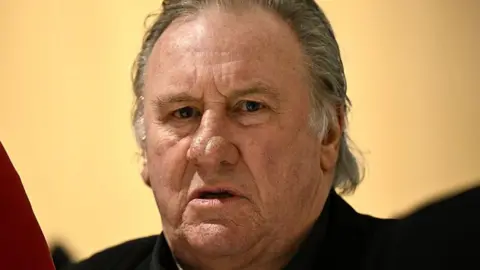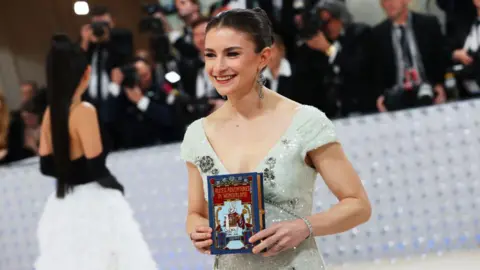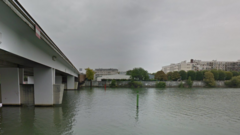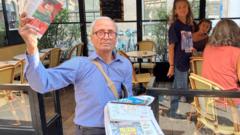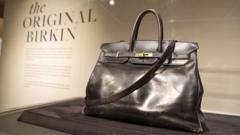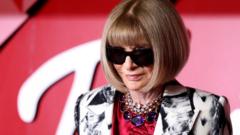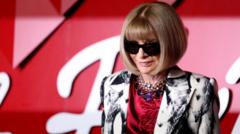Anna Wintour strides into the interview wearing her iconic dark sunglasses, firmly establishing her enigmatic presence as the longstanding editor-in-chief of Vogue since 1988. Our meeting takes place at VOGUE: Inventing the Runway, her proudly curated exhibition showcasing the dynamic history of the catwalk.
Surrounded by advanced digital projections in a dim underground venue, I inquire about her sunglasses. Wintour quips, "They help me see and they help me not see. They help me be seen and not be seen. They are a prop, I would say." In this peculiar blend of functionality and mystique, she reflects on her dual role as a fashion icon and business leader.
The exhibition, which utilizes high-tech audio-visual experiences, provides a link between attendees and the grandeur of historic fashion shows, something Wintour admits can feel routine for someone like her who has attended numerous events. "You get a little... used to the experience," she confesses, emphasizing the exhibition's intent to evoke the genuine thrill of live catwalk events.
Wintour's deep-seated relationship with the fashion world extends over forty years, during which she has honed her reputation as a transformative figure in the industry. She recounts minor aggravations with late shows, specifically mentioning an instance where Marc Jacobs was an hour and a half late—a grievance that propelled him to start subsequent shows earlier. This commitment to punctuality mirrors Wintour's own habits, as she prides herself on her chronic timeliness.
The narration of the exhibition, done by Hollywood star Cate Blanchett, unfolds into nostalgic reflections of various fashion eras. Wintour notes the dramatic transition from the elitist atmosphere of early fashion shows to today's more inclusive platforms, as showcased by Pharrell Williams' groundbreaking event for Louis Vuitton in 2023, viewed by millions online. "Now everyone can come to the party, which is as it should be," she asserts.
As crucial as she is to the fashion sector, Wintour also draws parallels to entertainment, notably through her orchestrating of the annual Met Gala. This opulent event symbolizes the intersection of fashion and celebrity, drawing viral attention every May and marking Wintour's unique ability to amalgamate these worlds.
Despite the myriad successes, questions linger regarding her often-stern public persona likened to Miranda Priestly from The Devil Wears Prada. However, Wintour humbly regards any similarities as coincidental, focusing instead on her job's creative elements. She dismisses notions of her being feared in the industry, suggesting that hearing 'no' can often lead to innovation and collaboration.
Under Wintour's stewardship, Vogue has not only weathered industry transitions but adapted to them, establishing itself as a dependable media authority amidst an age dominated by instant social media. Addressing perceptions of frivolity in fashion journalism, she passionately asserts the industry’s economic significance, employing millions globally.
At 75, Wintour shows no signs of departing her influential position. "I have no plans to leave my job," she states matter-of-factly, continuing her quest to maintain Vogue's standing in an ever-evolving cultural landscape. The exhibition, VOGUE: Inventing the Runway, is open to the public at Lightroom in London until April 2025, allowing audiences to immerse themselves in Wintour's vision and celebrate fashion’s ongoing evolution.

